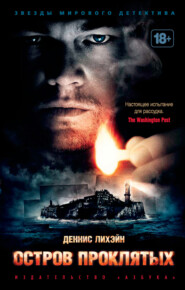По всем вопросам обращайтесь на: info@litportal.ru
(©) 2003-2024.
✖
The Terrorists
Автор
Год написания книги
2019
Настройки чтения
Размер шрифта
Высота строк
Поля
The roar of the explosion finally faded away, and there were sounds of cries, desperate calls for help, someone weeping and another person screaming hysterical curses, before all human sounds were drowned by the sirens of ambulances and the wail of a fire engine.
Gunvald Larsson got to his feet, found himself not seriously hurt and looked about to see what it was that had knocked him down. The object lay at his feet. It had a bull neck and a puffy face, and strangely enough, the black enamel steel-framed glasses were still on.
The security expert scrambled to his feet, clearly unhurt, even if some of his elegance had been dissipated. He stared incredulously at the head and crossed himself.
Gunvald Larsson looked down at his suit. It was ruined. ‘Goddammit,’ he said.
Then he looked at the head lying at his feet. ‘Maybe I ought to take it home,’ he said to himself. ‘As a souvenir.’
Francisco Bajamonde Cassavetes y Larrinaga looked questioningly at his guest. ‘Catastrophe,’ he said.
‘Yes, you could say that,’ said Gunvald Larsson.
Francisco Bajamonde Cassavetes y Larrinaga looked so unhappy that Gunvald Larsson felt duty-bound to add, ‘But no one could really blame you. And anyhow, he had an unusually ugly head.’
3 (#u68dcb960-0e3c-5a4f-a70c-b0360b1758a9)
The same day that Gunvald Larsson had his strange experience on the balcony with the lovely view, an eighteen-year-old girl named Rebecka Lind was being tried in Stockholm city court on a charge of armed robbery of a bank.
The public prosecutor in her case was Bulldozer Olsson, who for some years had been the judiciary's expert in armed robberies, which were spreading across the land like a plague. He was, as a result, an extremely harried man with so little time to spend at home that it had taken him three weeks, for instance, to discover that his wife had left him for good and been replaced by a laconic message on his pillow. This had not made all that much difference, as with his usual swiftness of action he had found himself another within three days. His new life partner was one of his secretaries who admired him unreservedly and devotedly, and certainly his suits appeared to be slightly less rumpled from that day on.
On this day he arrived breathlessly, two minutes before the trial was to begin. He was a corpulent but light-footed little man with a joyous countenance and lively movements. He always wore bright pink shirts, and his ties were in such indescribably bad taste that they had driven Gunvald Larsson almost insane when he had worked in Bulldozer's special group.
He looked round the bare and ill-heated anteroom of the court and discovered a group of five people, among them his own witnesses, and a person whose presence surprised him enormously. It was, in fact, the chief of the Murder Squad.
‘What on earth are you doing here?’ he said to Martin Beck.
‘I've been called as a witness.’
‘By whom?’
‘The defence.’
‘The defence? What does that mean?’
‘Braxén, counsel for the defence,’ said Martin Beck. ‘He drew this case, apparently.’
‘Crasher,’ said Bulldozer, clearly upset. ‘I've already had three meetings and two arrests today, and now I'll have to sit and listen to Crasher for the rest of the afternoon, I suppose. Do you know anything about this case?’
‘Not much, but Braxén's argument convinced me I ought to come. And I don't have anything special on at the moment.’
‘You people in the Murder Squad don't know what real work is,’ said Bulldozer Olsson. ‘I've got thirty-nine cases on the books and just as many on ice. You should work with me for a while, then you'd find out.’
Bulldozer Olsson won all his cases, with very few exceptions indeed. This, to put it delicately, was not especially flattering to the judiciary.
‘But you'll have an amusing afternoon,’ said Olsson. ‘Crasher'll give you a good show, for sure.’
Their discussion was interrupted by the case being called, and those involved, with one important exception, filed into the courtroom, a singularly dismal sector of the principal city courthouse. The windows were large and majestic, which in no way excused but possibly explained why they clearly had not been cleaned for a very long time.
The judge, assistant judge and seven jurymen on a platform behind a long connecting pulpit were staring with dignity out into the courtroom.
The accused was brought in through a small side door, a girl with shoulder-length fair hair, a sulky mouth and distant brown eyes. She was wearing a long, pale-green embroidered dress of some light, thin material and had black clogs on her feet.
The court was seated.
The judge turned to the girl, who was sitting to the left of the bench, and said, ‘The accused in the case is Rebecka Lind. Are you Rebecka Lind?’
‘Yes.’
‘May I ask you to speak a little louder?’
‘Yes.’
‘You were born on the third of January, nineteen hundred and fifty-six?’
‘Yes.’
‘I must ask the accused to speak louder.’ He said this as if it had to be said ritualistically, which was true, as the acoustics in the courtroom were singularly poor.
‘Counsel for the defence Hedobald Braxén appears to have been delayed,’ he went on. ‘In the meantime, we can summon the witnesses. Counsel for the prosecution has called two witnesses – Kerstin Franzén, bank cashier, and Kenneth Kvastmo, police constable. The defence has called the following: Martin Beck, chief inspector, Murder Squad; Karl Kristiansson, police constable; Rumford Bondesson, bank director; and Hedy-Marie Wirén, home economics teacher. Counsel for the defence has also called Walter Petrus, business executive, to testify, but he has declared himself unable to attend and has also declared that he has nothing whatsoever to do with the case.’
One of the jurymen sniggered.
‘The witnesses may now leave the court.’
The two policemen – as always on these occasions wearing uniform trousers and black shoes plus dreary blazers – Martin Beck, the bank director, the home economics teacher and the bank cashier all trooped out into the foyer. Only the accused, her guard and one spectator remained in the courtroom.
Bulldozer studied his papers busily for about two minutes, then looked curiously at the spectator, a woman Bulldozer reckoned to be about thirty-five. She was sitting on one of the benches with a shorthand pad open in front of her. She was of below average height and had dead-straight blonde hair, not especially long. Her clothes consisted of faded jeans, a shirt of indefinite colour and strap sandals. She had broad, sunburnt feet with straight toes, flat breasts with large nipples that could be seen quite clearly through her shirt. The most remarkable thing about her was her small, angular face with its strong nose and piercing blue gaze, which she directed in turn on those present. Her gaze rested especially long on the accused and Bulldozer Olsson; in the latter case so piercingly that the public prosecutor rose to pour himself a glass of water and moved into a position behind her. She at once turned and caught his eye.
Sexually she was not his type, if he even had a type, but he was intensely curious about who she could be. Viewed from behind, he could see that she was compactly built, without being in the least plump.
If he had asked Martin Beck, who was standing around in a corner of the foyer, he might have learned something. For instance, that she was not thirty-five but thirty-nine, that she had a considerable background in sociology, and that at present she was working for social services. Martin Beck knew a great deal about her in fact, but had very little information he wished to proffer, as most of it was of a personal nature. Possibly he would have said, if anyone had asked him, that her name was Rhea Nielsen.
Twenty-two minutes after the prescribed time, the doors were thrown open and Crasher appeared. He was carrying a smouldering cigar in one hand and his papers in the other. He studied the documents phlegmatically and the judge had to clear his throat meaningfully three times before he absently handed the cigar to the court official to remove from the courtroom.
‘Mr Braxén has now arrived,’ said the judge acidly. ‘May we ask whether there is any further objection to starting the case?’
Bulldozer shook his head and said, ‘No, certainly not. Not as far as I'm concerned.’
Braxén rose and walked to the middle of the floor. He was considerably older than anyone else in the room, a man of authority with an impressive stomach. He was also remarkably badly and unfashionably dressed, and a none too squeamish cat could have made a good meal from the food stains on his waistcoat. After a long silence, during which he fixed Bulldozer with a peculiar look, he said, ‘Apart from the fact that this little girl should never have been brought to court, I have no judicial objections. Speaking purely technically.’
‘Would the counsel for the prosecution now introduce the case,’ said the judge.
Bulldozer leaped up from his chair and with his head down began plodding round the table on which his papers lay.
‘I maintain that Rebecka Lind on Wednesday the twenty-second of May this year committed armed robbery of the PK Bank's branch in Midsommarkransen, and thereafter was guilty of assaulting an official in that she resisted the policemen who came to take her into custody.’
‘And what does the accused say?’










